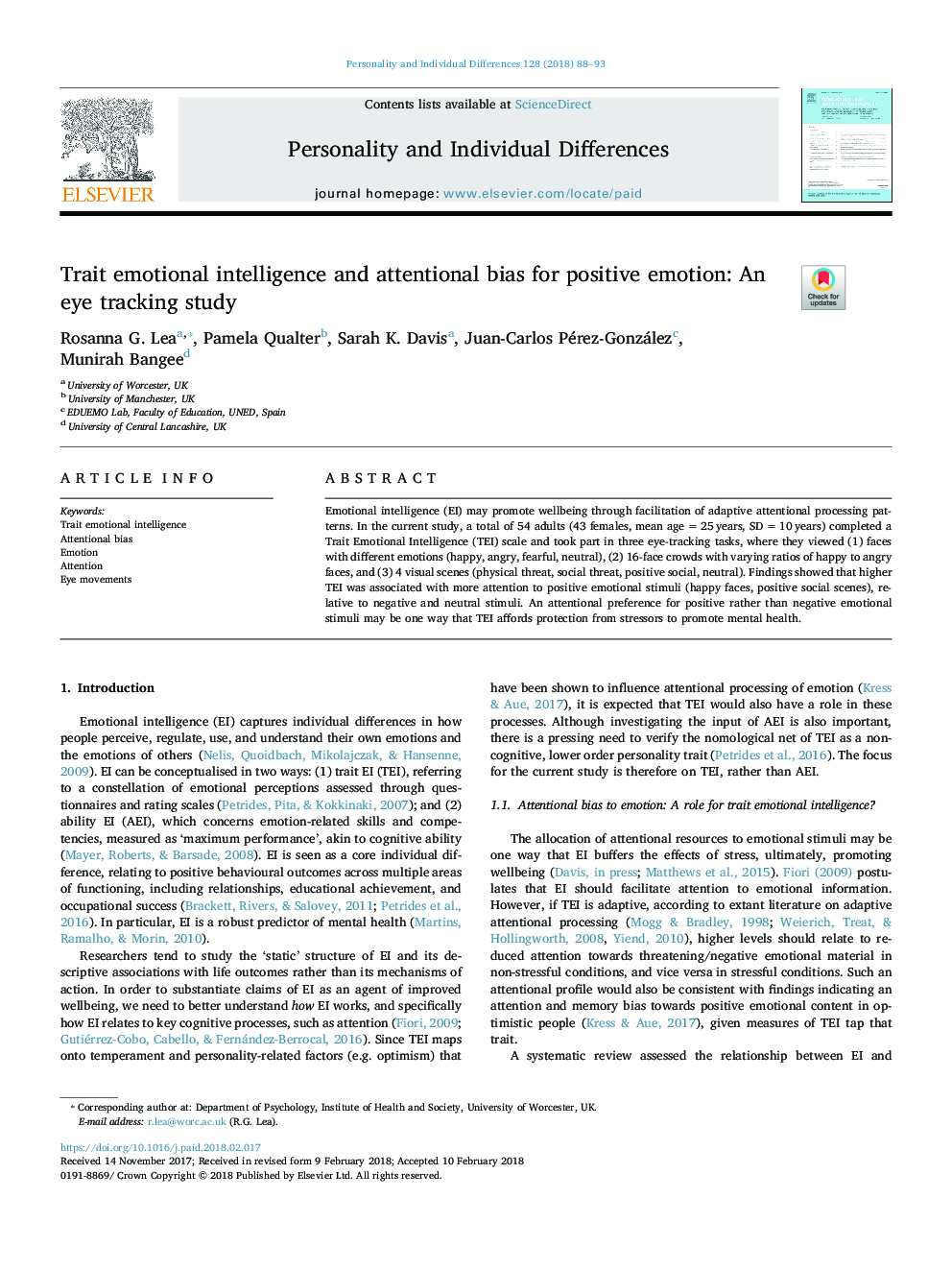| Article ID | Journal | Published Year | Pages | File Type |
|---|---|---|---|---|
| 7248816 | Personality and Individual Differences | 2018 | 6 Pages |
Abstract
Emotional intelligence (EI) may promote wellbeing through facilitation of adaptive attentional processing patterns. In the current study, a total of 54 adults (43 females, mean ageâ¯=â¯25â¯years, SDâ¯=â¯10â¯years) completed a Trait Emotional Intelligence (TEI) scale and took part in three eye-tracking tasks, where they viewed (1) faces with different emotions (happy, angry, fearful, neutral), (2) 16-face crowds with varying ratios of happy to angry faces, and (3) 4 visual scenes (physical threat, social threat, positive social, neutral). Findings showed that higher TEI was associated with more attention to positive emotional stimuli (happy faces, positive social scenes), relative to negative and neutral stimuli. An attentional preference for positive rather than negative emotional stimuli may be one way that TEI affords protection from stressors to promote mental health.
Related Topics
Life Sciences
Neuroscience
Behavioral Neuroscience
Authors
Rosanna G. Lea, Pamela Qualter, Sarah K. Davis, Juan-Carlos Pérez-González, Munirah Bangee,
